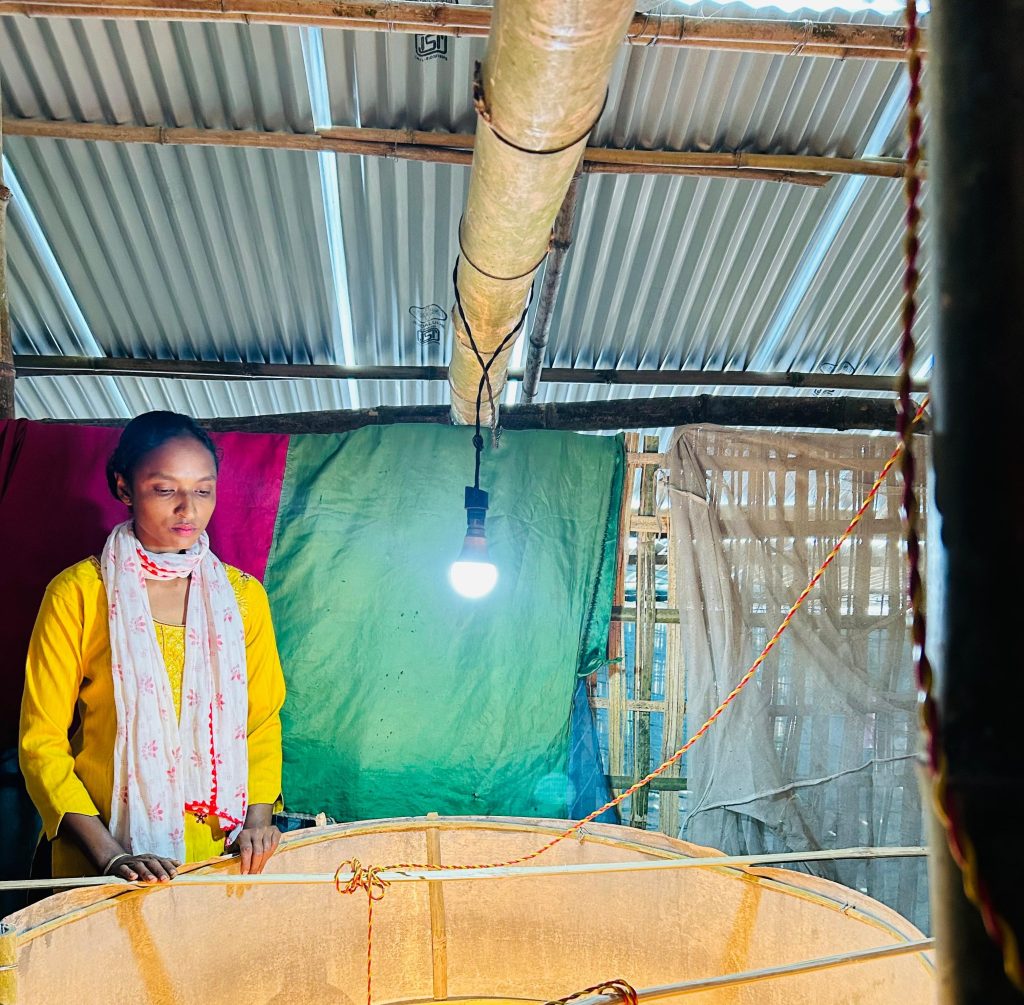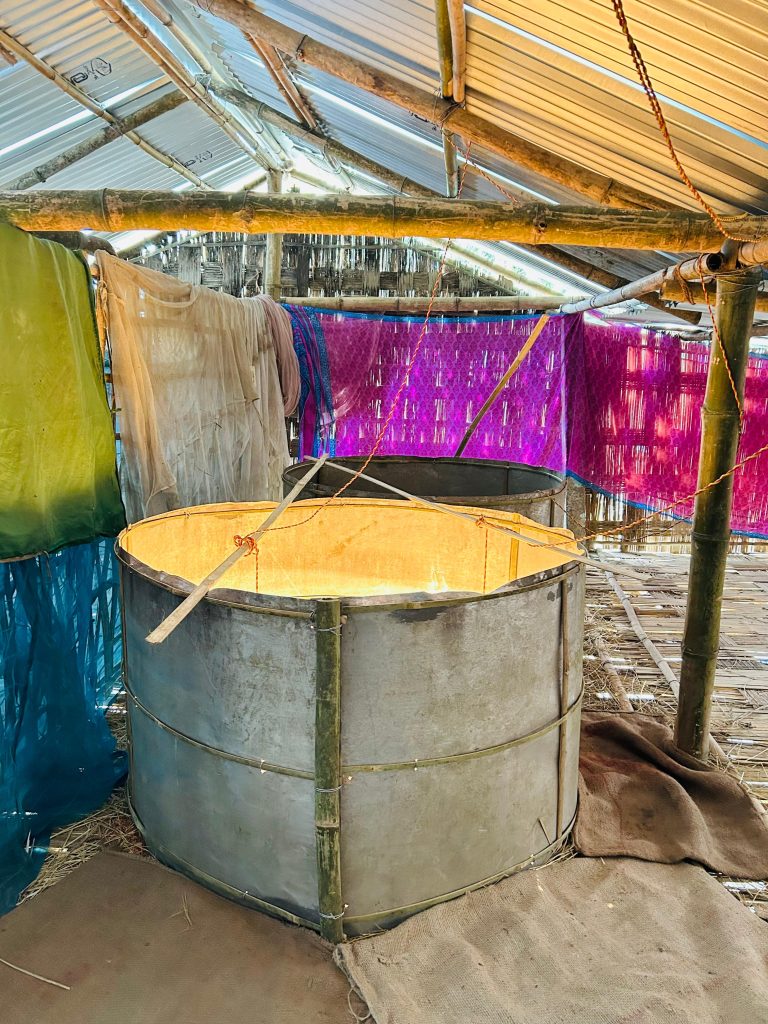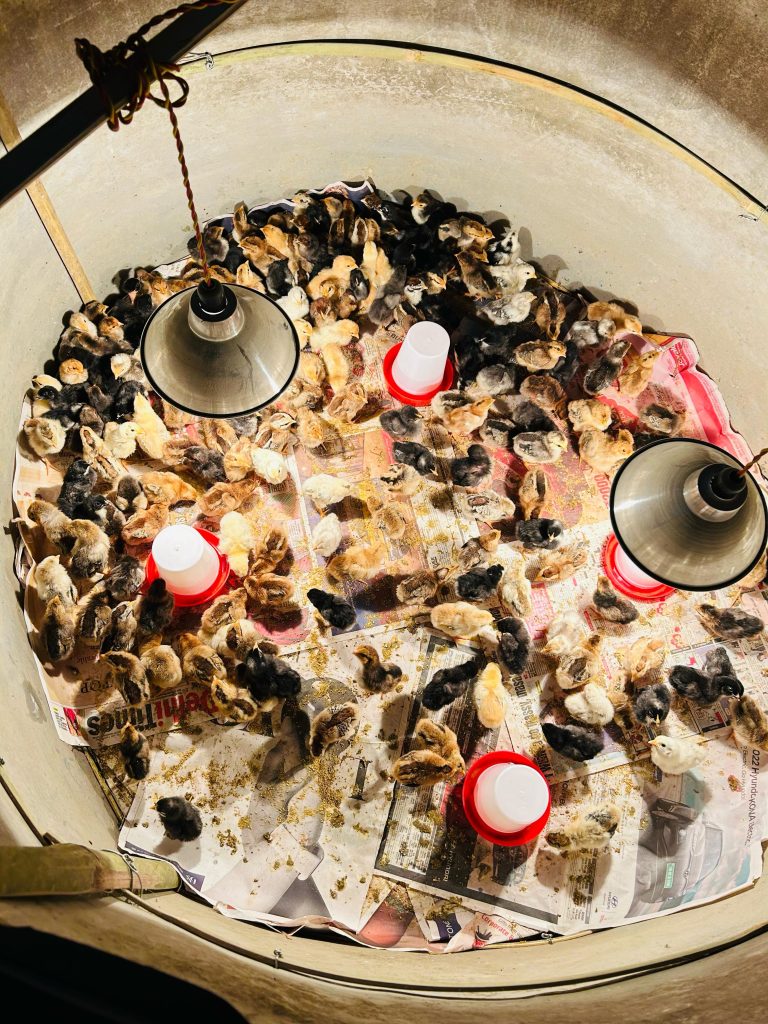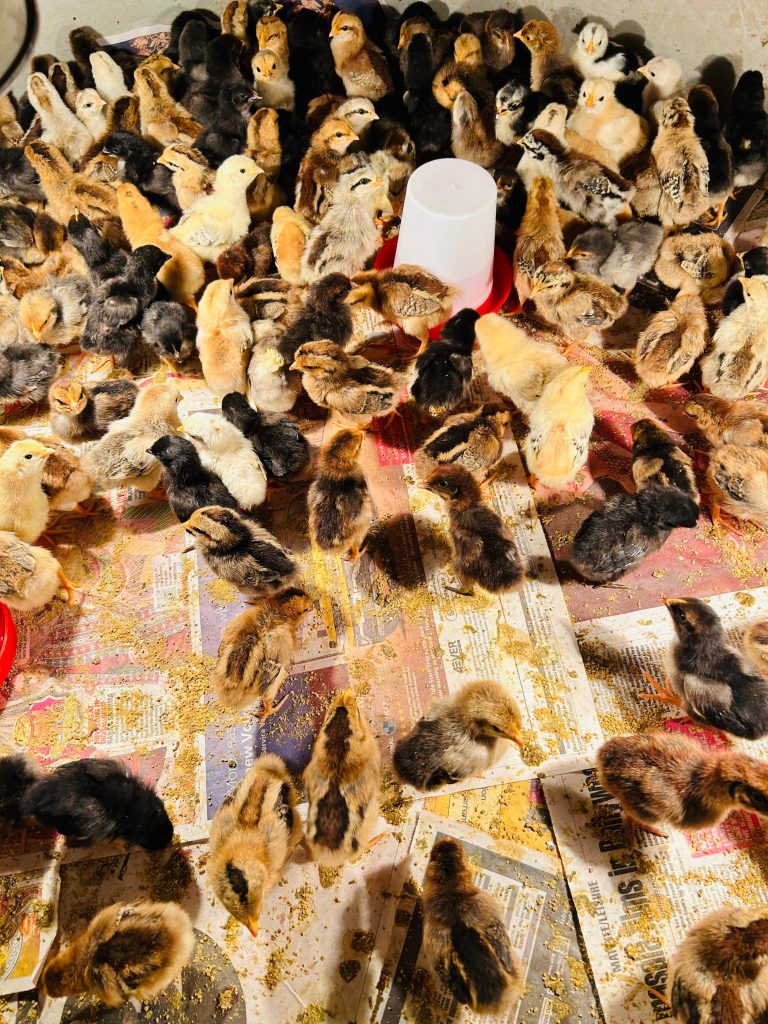Seven Sisters Development Assistance
Blogs
Majida Begum: Overcoming Challenges to Build a Thriving Poultry Business
Introduction
Majida Begum, a 28-year-old resident of Koibortogarh village of Jhanjimukh GP (Gram Panchayat), under the Kaliapani Block, East Jorhat, has been engaged in poultry rearing for almost ten years. Despite facing multiple challenges in the initial phase, her firmness of purpose, combined with institutional support, has enabled her to become a successful entrepreneur. Her journey reflects the impact of knowledge-building, technical support, and self-motivation in improving rural livelihoods.

Early Struggles in Poultry Rearing
When Majida first ventured into poultry rearing, she suffered significant losses due to a lack of technical knowledge. She was unaware of proper poultry management practices, leading to frequent outbreaks of diseases, resulting in the death of her chicks. At one point, she was forced to bury her entire poultry shed to prevent the spread of infections. However, a month later, after living in dilemmas, her determination pushed her to rebuild and restart with just four chicks, which later multiplied and sustained her poultry business.
Majida Begum joined the Rodali Self-Help Group (SHG) and the Asomiya Gramya Sangathan Village Organization (VO), which played a central role in connecting her with SeSTA. During frequent visits by Simi Borah from SeSTA to SHG meetings as well as VO meetings, Majida got exposure to different opportunities to sell 35 chicks to her village residents, as asked by Simi Borah. Encouraged by this success, she expanded her business and sold 50 chicks in her next sale, followed by another sale of 20 chicks. Majida was rearing and selling from the training received from SeSTA with the support of Axis Bank Foundation (ABF).

Recognition as an Entrepreneur
Seeing Majida’s dedication and progress, SeSTA professionals recognized Majida as a potential entrepreneur for backyard poultry rearing. She was nominated for the orientation program of the BYP entrepreneurship training program in Tinsukia, organized by Axis Bank Foundation (ABF), and later she again received training on the thematics. This training provided her with insights on financial investment, business presentation, and overcoming losses in entrepreneurship.
Additionally, she underwent specialized poultry management training at Assam Agricultural University, Jorhat, where she learned about proper shed management, vaccination procedures, feed management, and disease prevention and control etc. For vaccination and health-related concerns, she regularly consults Simi Borah and the village’s pashu sakhi.
Training and Capacity Building
Post-training, Majida received financial and technical support from SeSTA to establish a well-structured poultry farm. The assistance covered the cost of setting up a shed and purchasing chicks. She reinvested her earnings into the business, and she frequently earns money from her poultry venture. It is sometimes 5000, 8000, 10,000 or sometimes more, depending on the size of the batch. Her recent sale helped her earn Rs. 12,000 from selling chicks.
Majida has now mastered poultry rearing techniques and follows strict biosecurity measures, including regular cleaning of the shed, frequent washing and sanitization of feeding utensils, restricted entry into the farm to ensure visitors leave their slippers outside, and monitoring early symptoms of diseases to implement timely interventions.


Adoption of Best Practices
Apart from strengthening her own business, Majida actively shares her knowledge with other poultry breeders in the village. She has advised fellow poultry farmers on disease prevention and treatment, maintaining hygienic farm conditions, and feed management techniques. One remarkable instance of her expertise was when she helped a fellow beneficiary of her village revive an overheated chicken by submerging it in a cool water bucket up to its neck, ensuring it could breathe, and later placing it under a fan to quickly cool it down. This life-saving intervention was a direct outcome of the training she received from SeSTA. Like this, she has helped in saving many other birds in her nearby households to revive from deadly diseases and viruses by providing the solutions.
Conclusion
Majida Begum’s transformation from a struggling poultry rearer to a thriving entrepreneur is an indication of the power of training, institutional support, and perseverance. With continued guidance from SeSTA and the Axis Bank Foundation (ABF), she has established a sustainable livelihood and emerged as a community resource person, guiding others toward successful poultry farming. Her journey serves as an inspiring model for other women in rural communities, showcasing how skill-building and enterprise development can lead to economic empowerment.
